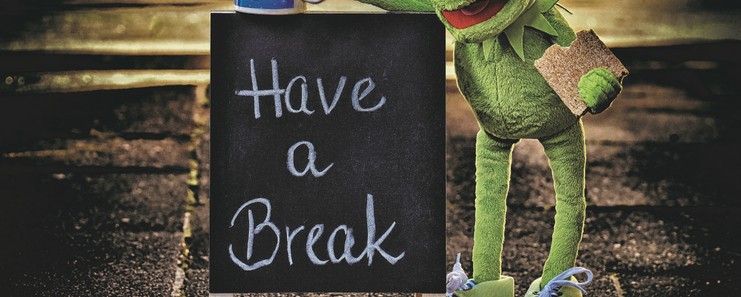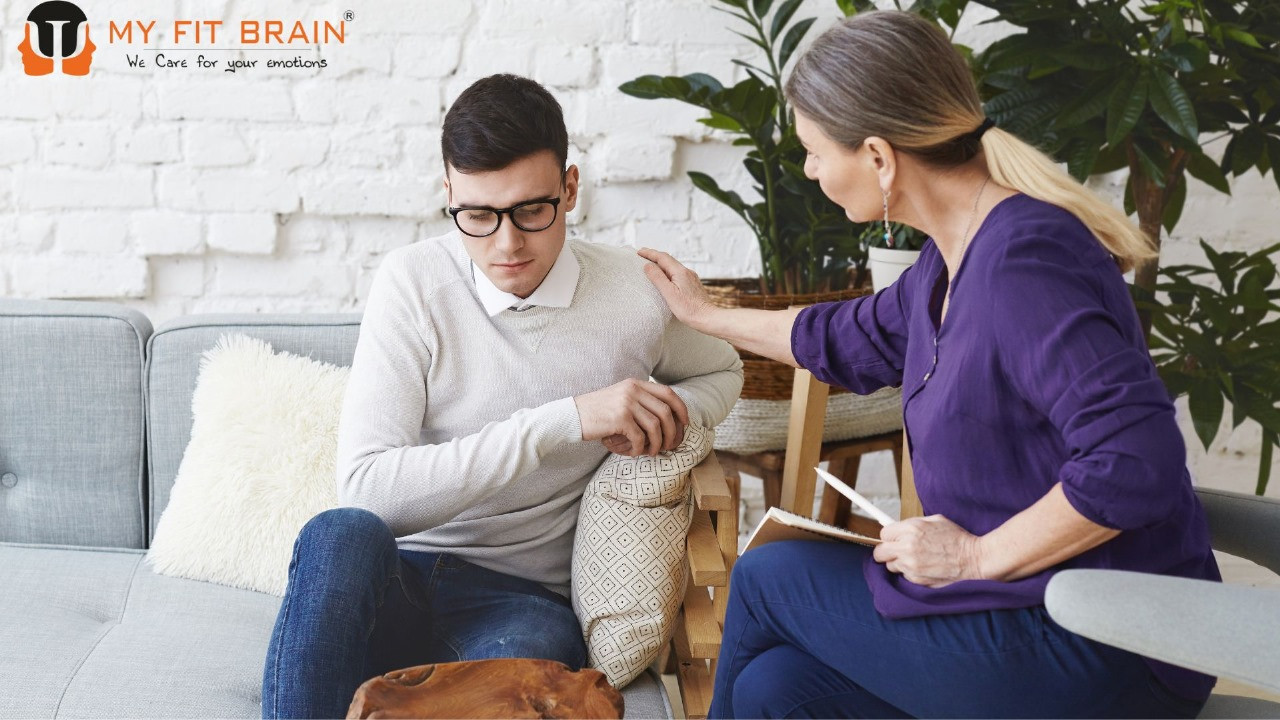Package of 5 Sessions
- Rs.5,999.00/-
The symptoms of anxiety can vary depending on the type of anxiety you're experiencing. Here are some mistakes to avoid when dealing with anxiety.
 A JOSHNA
A JOSHNA  05 Feb 2023
05 Feb 2023  Anxiety
Anxiety  3.1k Reads
3.1k Reads  10 min Read
10 min Read 
Anxiety can have a profound effect on your overall health. It can lead to physical symptoms such as headaches, chest pain, and stomach problems. It can also cause you to feel tired, irritable, and on edge. If left unchecked, anxiety can take a toll on your mental health, causing problems with concentration, sleep, and mood.
Fortunately, there are things you can do to reduce anxiety and improve your overall health. Today we'll discuss how to stop anxiety and mistakes to avoid when dealing with anxiety.
People with anxiety may have difficulty concentrating or sleeping. Physical symptoms such as sweating, rapid heartbeat, and tension headaches are common in people with anxiety.
Anxiety disorders can cause significant distress and impairment in daily functioning. Treatment for anxiety typically includes cognitive-behavioral therapy and medication. There are other disorders as well, like victim mentality disorder.
If you are wondering about what is victim mentality disorder. Feelings of victimization, insecurity, and powerlessness characterize victim mentality disorder. People with this disorder often believe that they are powerless to change their circumstances or that they are somehow deserving of their plight.
For some people, anxiety can be much more than just an occasional feeling. Many different things can trigger anxiety. Some people may be anxious when they feel like they're not in control, such as public speaking or taking a test. Others may have pressure triggered by something specific, like heights or flying on an airplane.
Sometimes, the triggers of anxiety are not always obvious. It is essential to pay attention to your body and mind to try to identify what may be causing your stress.
There are times when people have a phobia of something that could be related to animals or water etc, and this could lead to anxiety a major depressive disorder.
One of the major triggers of anxiety has always been some serious personal problems or turmoil in the family which could spoil the mental health of an individual.
When it comes to knowing what is victim mentality disorder, it is when you blame the external factors of everything and never take ownership of what is happening in your life.

One of the major triggers of anxiety is being overworked. If you are wondering How to overcome mental exhaustion, then it is ofcourse to try and break otherwise it can cause serious mental health issues.
This is a fact that there is a close relationship between eating the right food and having anxiety. The more sugar or oily food one eats, there are more chances of getting an anxiety attack.
There are many habits that we can adopt to reduce anxiety. When it comes to anxiety, there are some habits which one can avoid to make sure to be sane for a longer duration.
Instead of watching the nightly news or reading the paper first thing in the morning, try catching up on the news later in the day or evening. And when you do watch or read the information, focus on the positive stories. Focusing on the positive can help balance out all of the negative and help reduce anxiety levels. Therefore, listening too much to bad news can be one of the mistakes to avoid when dealing with anxiety.

It can be tough to stay positive if you find yourself around people who are constantly negative. While it's essential to be a voice of reason and optimism, being around negativity all the time can take a toll. If you're trying to reduce your anxiety, one of the habits to avoid when dealing with anxiety is to refrain from spending time with people with a negative mindset.
It can be difficult to avoid negative people altogether, but limiting your exposure to them is essential. When you're anxious, spend time with friends or family members who make you feel good about yourself. Focus on positive activities, like spending time outdoors or taking up a new hobby. The more positive experiences you have, the easier it will be to counterbalance the negativity in your life.
A bit of caffeine can help get us going in the morning; too much of it can lead to anxiety and other undesirable side effects.
That's why it's essential to be mindful of our caffeine intake and ensure we're not consuming too much of it. One of the tips to reduce anxiety is to reduce the amount of caffeine we consume daily. Too much caffeine is one of the mistakes to avoid when dealing with anxiety.

One of the best ways to reduce anxiety is to stop procrastinating or blaming yourself. Both of these habits can create a lot of stress and anxiety in your life. You will feel much better if you learn to let go of them.
We are afraid that we will be unable to do something perfectly, so we put it off. Blaming yourself also creates a lot of stress and anxiety, which is one of the habits to avoid when dealing with anxiety.

Avoid caffeine and alcohol before bed, and wind down with some relaxation techniques before turning in for the night. Getting good sleep reduces anxiety and promotes overall health and well-being.
If you are wondering "What should you not do when feeling anxious," the answer may be staying awake for extended periods. Try getting enough sleep at night.
It is no secret that many people use alcohol and cigarettes to cope with anxiety. While these substances may provide temporary relief, they are not a long-term solution and can make anxiety worse in the long run. If you are struggling with anxiety, it is essential to try to reduce your consumption of alcohol and cigarettes.

One of the best things you can do to reduce work anxiety is to take regular breaks. When you take a break, even just a few minutes, you give yourself a chance to relax and rejuvenate. It can help you feel less anxious and more capable of dealing with whatever challenges come your way. If you are wondering about "What should you not do when feeling anxious," then doing work all day without taking breaks in between is one of the things.
There are several ways to ensure you take enough breaks throughout the day. One is to set a timer for yourself and ensure you step away from your work every 20-30 minutes. Another is to take a walk outside every few hours. And finally, make sure you take a proper lunch break – even if it’s just 30 minutes, it will do wonders for your stress levels.
One of the best ways to reduce anxiety is to ensure you are not skipping meals. When you skip meals, your blood sugar levels can drop, triggering anxiety. Make sure to eat three square meals a day and also include healthy snacks in between meals. It will help to keep your blood sugar levels stable and reduce anxiety.

It is important to never miss therapy and medicines as a habit to reduce anxiety. When people suffer from anxiety, it can be challenging to stick to a treatment plan. However, missing appointments or skipping are some of the mistakes to avoid when dealing with anxiety. It is essential to be consistent with therapy and medications to see the best results. There are many antidepressants used for depression, and you should take them on time
Suppose you're looking for ways to reduce anxiety; one of the habits you should adopt is exercising for at least 1 hour daily. It helps to release endorphins, which have mood-boosting effects. Additionally, exercise can help to improve sleep quality, which can further reduce stress and anxiety levels.
While some anxiety is normal and helpful, it can become a problem when it's excessive or chronic. If you were looking for the answer of how to stop anxiety, then you can read the above remedies above. When this happens, it can interfere with your daily life and make it difficult to cope with everyday challenges. One can always take relationship counseling to get more tips on how to deal with anxiety.
Some people find that relaxation techniques such as yoga, meditation, and deep breathing help them to feel calm and relaxed. Others find that exercise is a great way to relieve stress and tension. Today we have discussed many habits that you can adopt to reduce anxiety. If you are wondering how to reduce death thoughts, then reducing anxiety is one of the best things you can do.
Anxiety is a normal human emotion we all experience at one point or another. It's the body's natural response to stress, and it can be both helpful and harmful. Anxiety can help us stay alert and motivated, but it can also make us feel overwhelmed and stressed. Hence, it is important to know how to overcome mental exhaustion, as anxiety can cause serious issues.
There are several types of anxiety, including social anxiety disorder, major depressive disorder, panic disorder, agoraphobia, specific phobias, and general anxiety disorder. Each type of anxiety has its unique symptoms and causes.
The symptoms of anxiety can vary depending on the type of anxiety you're experiencing. But generally speaking, symptoms of anxiety include: feeling restless or on edge, feeling fatigued, having difficulty concentrating, feeling irritable, having muscle tension, and having trouble sleeping.
There is no single cause of anxiety. Instead, it is usually a combination of factors contributing to an individual developing an anxious condition. Characteristics include genetic predisposition, brain chemistry, life experiences, and personality traits.
Treatment for anxiety usually involves some combination of medication and therapy. Medication can help reduce anxiety symptoms so you can more effectively participate in treatment. The therapy itself is to help you understand and reduce your anxiety. You can go for online counseling to reduce your stress.
What is Social Anxiety Disorder
Panic attack vs anxiety attack
_1759819432.jpg)

The emotional connection is the basis of any healthy, long-lasting relation...
 07 Oct 2025
07 Oct 2025  10 min Read
10 min Read 73 Reads
73 Reads _1758801555.jpg)

In today's rapidly developing world, anxiety has become a common challe...
 25 Sep 2025
25 Sep 2025  10 min Read
10 min Read 218 Reads
218 Reads _1758348328.jpg)

A healthy sex life is an integral part of overall well-being and happiness....
 20 Sep 2025
20 Sep 2025  10 min Read
10 min Read 409 Reads
409 Reads 

Each relationship goes through ascents and falls. However, when the argumen...
 15 Sep 2025
15 Sep 2025  10 min Read
10 min Read 483 Reads
483 Reads 
_1759819432.jpg)
_1758801555.jpg)
_1758348328.jpg)
_1759819432.jpg)
_1758801555.jpg)
_1758348328.jpg)
